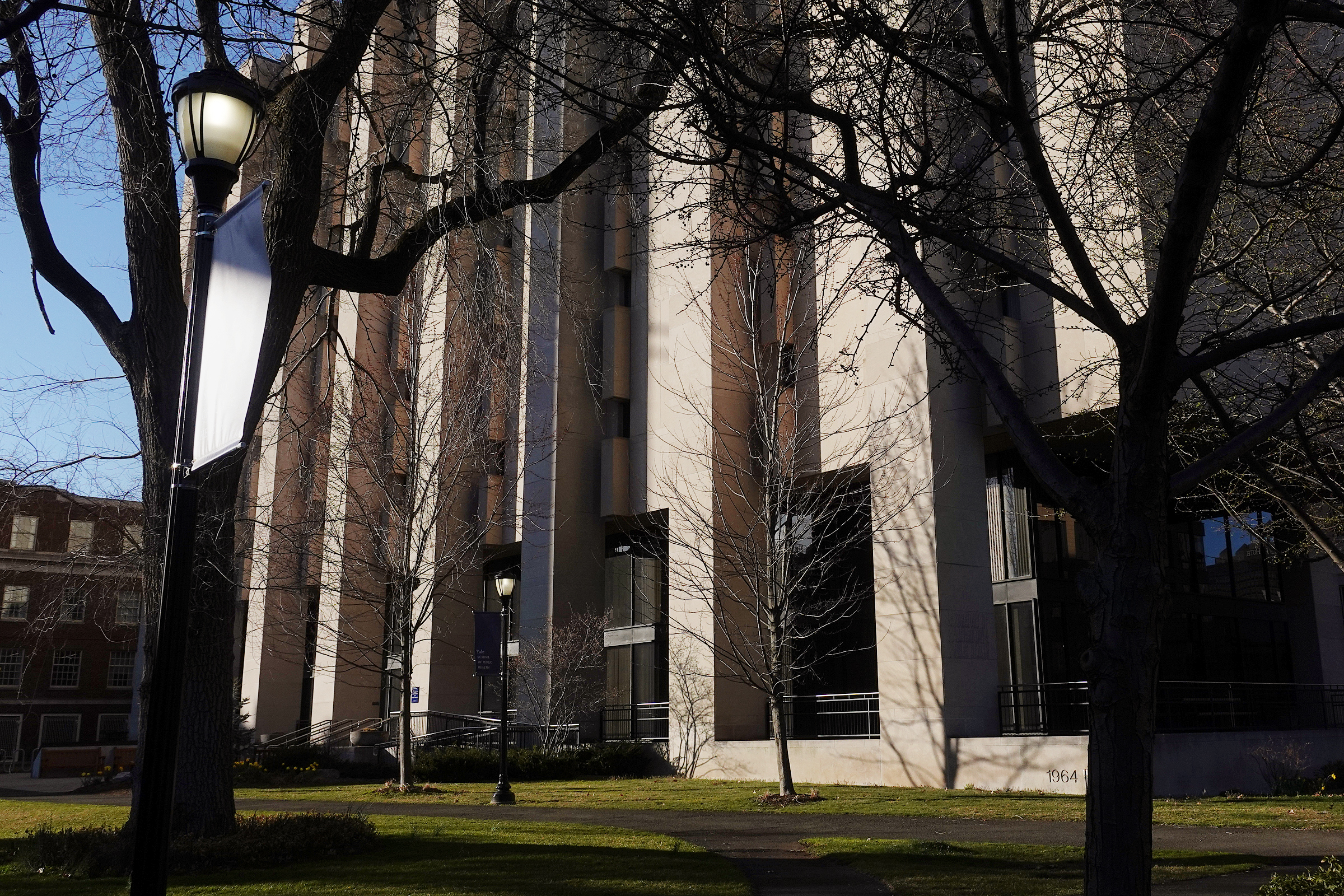Experts at Yale spoke about effects, prevention and documentation of attacks on health care facilities in conflict zones.
Kalina Brookfield
Reporter of the staff

Tim Tai, senior photographer
In the midst of increasing violence against health care in conflict areas, the Humanitarian Research Lab of the School of Public Health joined the protection of health in conflict coalition or SHCC.
The Yale Humanitarian Research Lab analyzes data to detect threats for citizens and document them in violations of international humanitarian law. HRL has recently become a member of the Security Health in Coalition Conflict, a network of organizations that work on protecting healthcare systems in conflict areas, in particular because health care facilities in conflict areas are confronted with increasing violence threats.
“Our laboratory is at the forefront of this work and provides cover of damage to the health care facilities,” said Danielle Poole, director of research for HRL.
According to Poole, HRL uses a combination of satellite images and other teledentetics with open source information, such as social media, to document threats for citizens in almost real -time. Their data collection method makes it possible to get an extensive understanding of damage.
By applying their data methods to keep track of attacks on health care in conflict zones in violation of international humanitarian law, including air strikes on hospitals and clinics, as well as attacks on health workers, the HRL creates documentation that can be used in the SHCC’s advocacy.
The SHCC includes non-governmental organizations, civil society organizations and academic centers that deal with violence against health care and conflicts. The coalition produces an annual report on attacks on health care around the world and lawyers in international forums to involve institutions and create mechanisms to protect healthcare in conflicts.
“There is a real lack of public data in standard systems for documentation,” says Nathaniel Raymond, executive director of HRL. “We want to improve how data is standardized in official counts, so that there is more accountability and information to rebuild.”
HRL has already documented attacks on health facilities in Gaza, Ukraine and Sudan, including in conflict. According to Poole, early analyzes from the lab have shown that for certain periods of those specific conflicts, almost two -thirds of the health facilities were damaged, which demonstrates clearly failure to comply with international humanitarian law.
Released reports of HRL in the past contributed to criminal charges of the International Criminal Court. In March 2024, arrest trips were issued for high military officials in Russia, only a few days after the HRL had released a report that identified 223 incidents of damage to the power infrastructure of Ukraine.
The news spoke with professionals from Yale who had investigated the targeting of health care systems in Ukraine during the conflict.
“We hardly understand the scope of this issue,” said Andrey Zinchuk, assistant professor at the School of Medicine, who has done humanitarian work training in health care in Ukraine, “they systematically focus on hospitals, clinics and medical facilities.”
The destruction of health care facilities in Ukraine not only destroys the physical infrastructure, but also results in a massive loss of life, disrupts medical staff and presents consequences for the ability of the region to recover, according to Frederick Altice, a professor of the School of Medicine that has done healthwork in Ukraine worldwide.
Altice described how attackers justify attacks on health care facilities by claiming that they are used to accommodate hostages, as well as how cuts will further burden on USAID resources and forcing care providers to make difficult triage decisions in an already fragile system.
The Yale Humanitarian Research Lab is part of the School of Public Health.



